
In the world of agriculture and gardening, understanding plant nutrients is crucial for cultivating healthy plants. Among the essential micronutrients required by plants, copper plays a significant role. This article delves into the importance of copper in plant growth, the symptoms of copper deficiency, and how to address this issue effectively.
The Role of Copper in Plant Growth
Copper is a vital micronutrient that contributes to various physiological processes in plants. It is a component of several enzymes and proteins, playing a key role in photosynthesis, respiration, and lignin synthesis. Lignin is essential for strengthening plant cell walls, which helps in maintaining structural integrity and defense against pathogens.
Moreover, copper is involved in the metabolism of carbohydrates and proteins. It also aids in the formation of seeds, making it an indispensable nutrient for plant reproduction. Despite being required in small quantities, a deficiency in copper can lead to significant growth problems.
Symptoms of Copper Deficiency
Copper deficiency can manifest in various ways, depending on the plant species and environmental conditions. Some common symptoms include:
- Stunted Growth: One of the most noticeable signs of copper deficiency is reduced growth rate and smaller plant size.
- Leaf Discoloration: Younger leaves may exhibit a bluish-green tint, while older leaves may become pale and lose their natural color.
- Leaf Curling: Leaves might curl or become distorted, affecting the plant’s overall appearance and health.
- Delayed Flowering and Fruiting: Copper deficiency can lead to delayed flowering and reduced fruit set, impacting crop yields.
Causes of Copper Deficiency
Copper deficiency can be attributed to several factors, including soil composition, pH levels, and environmental conditions. Sandy soils, low in organic matter, are often deficient in copper. High soil pH can also reduce copper availability, leading to deficiency symptoms.
Excessive application of fertilizers containing phosphorus can interfere with copper uptake. Additionally, heavy rainfall and waterlogged soils can leach copper from the root zone, exacerbating the deficiency.
Addressing Copper Deficiency
To address copper deficiency, it is essential to conduct a soil test to determine copper levels. Based on the results, appropriate measures can be taken:
- Soil Amendments: Applying copper sulfate or other copper-containing fertilizers can replenish copper levels in the soil.
- pH Adjustment: Lowering soil pH can increase copper availability. This can be achieved by adding organic matter or sulfur to the soil.
- Foliar Sprays: In cases of severe deficiency, foliar sprays containing copper can provide immediate relief to plants.
It is important to follow recommended guidelines for copper application, as excessive copper can be toxic to plants and soil life.
Preventing Copper Deficiency
Prevention is always better than cure. Regular soil testing and maintaining optimal soil conditions can help prevent copper deficiency. Incorporating organic matter, such as compost or well-rotted manure, can improve soil structure and nutrient availability.
Crop rotation and avoiding excessive use of phosphorus-rich fertilizers can also prevent copper deficiency. By adopting these practices, gardeners and farmers can ensure healthy plant growth and maximize crop yields.
Conclusion
Copper deficiency is a common issue that can significantly impact plant health and productivity. By understanding the role of copper in plant growth and recognizing deficiency symptoms, gardeners and farmers can take proactive measures to address this problem. With proper soil management and nutrient application, it is possible to prevent copper deficiency and promote robust plant development.
Copper is a vital micronutrient that contributes to various physiological processes in plants. Copper deficiency can manifest in stunted growth, leaf discoloration, and delayed flowering. Conducting soil tests and applying appropriate amendments can address copper deficiency. Regular soil testing and maintaining optimal soil conditions can help prevent copper deficiency. 
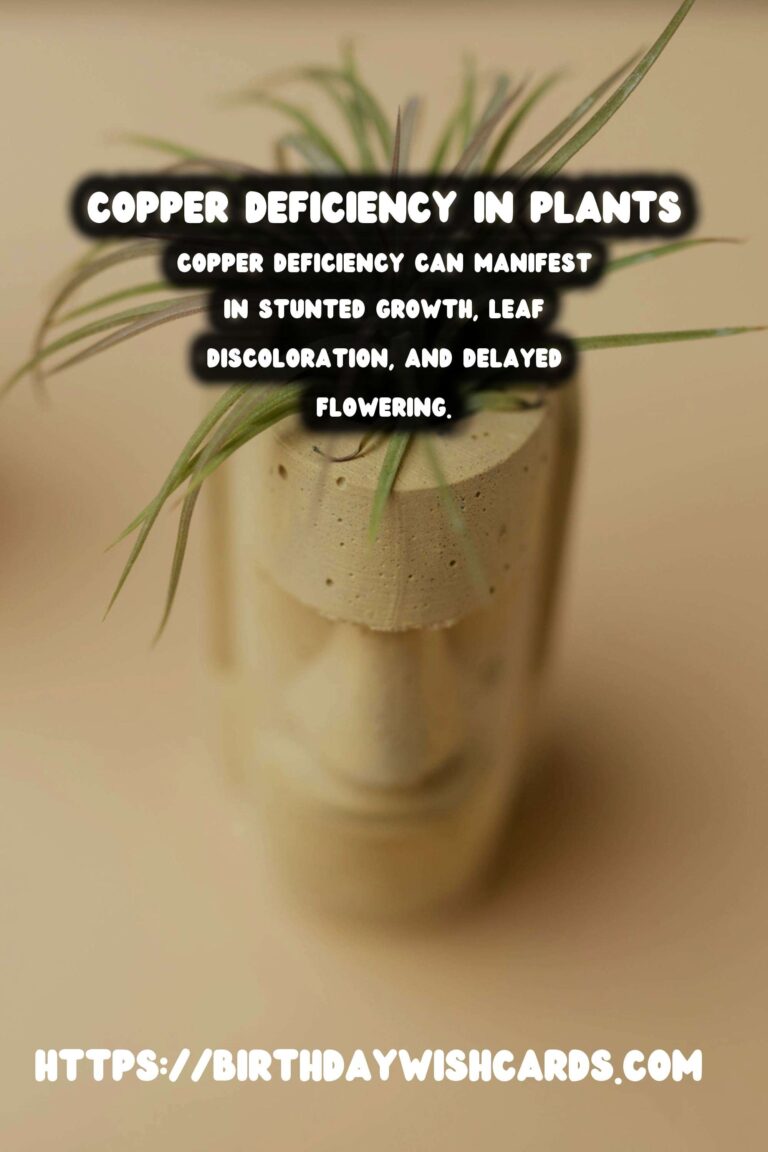
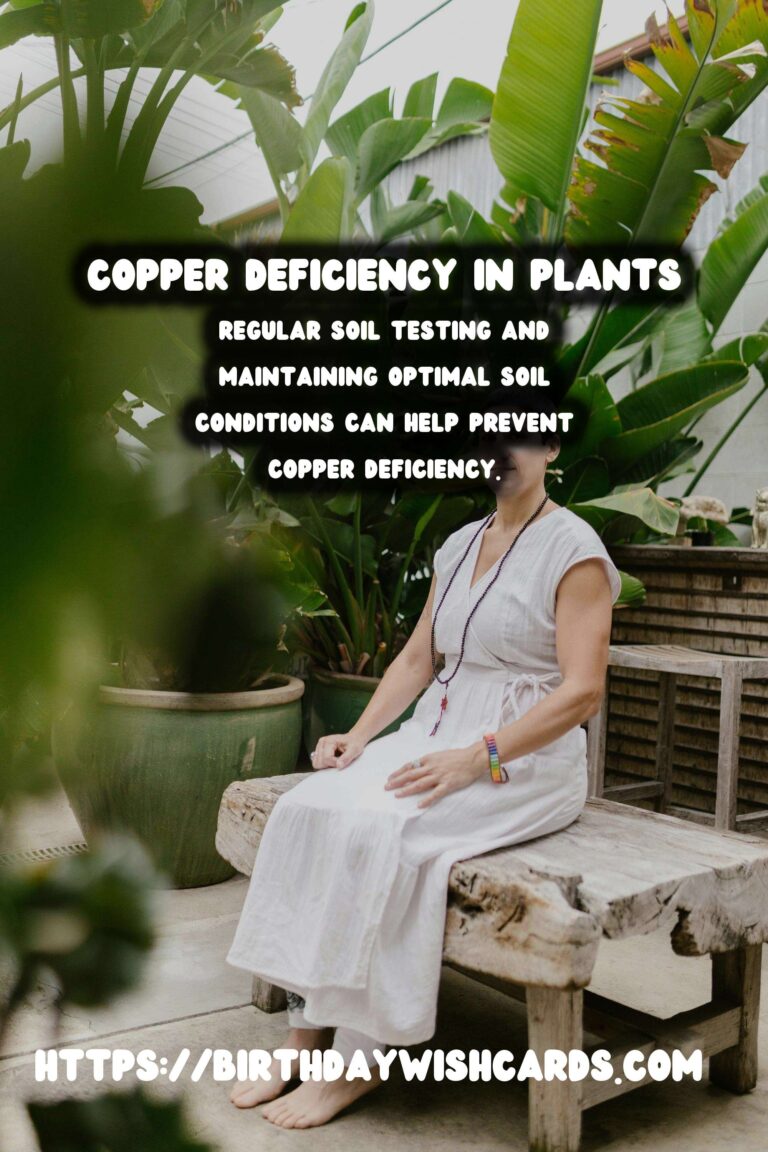
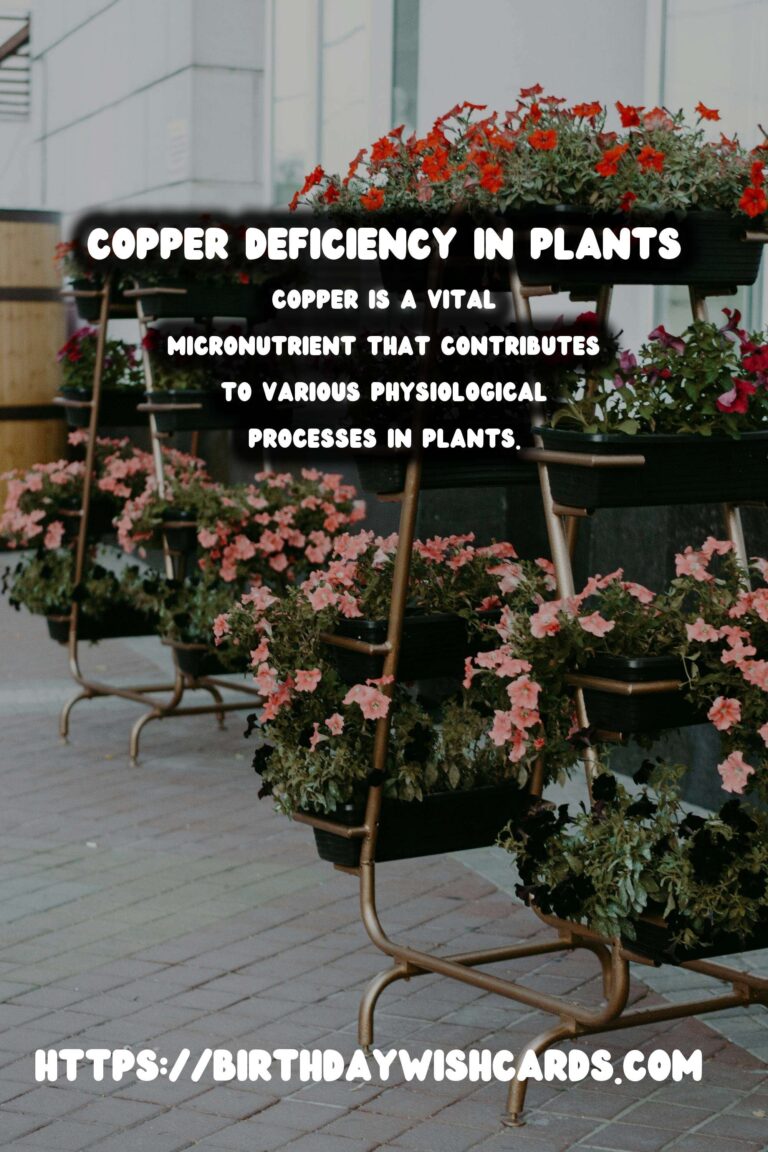
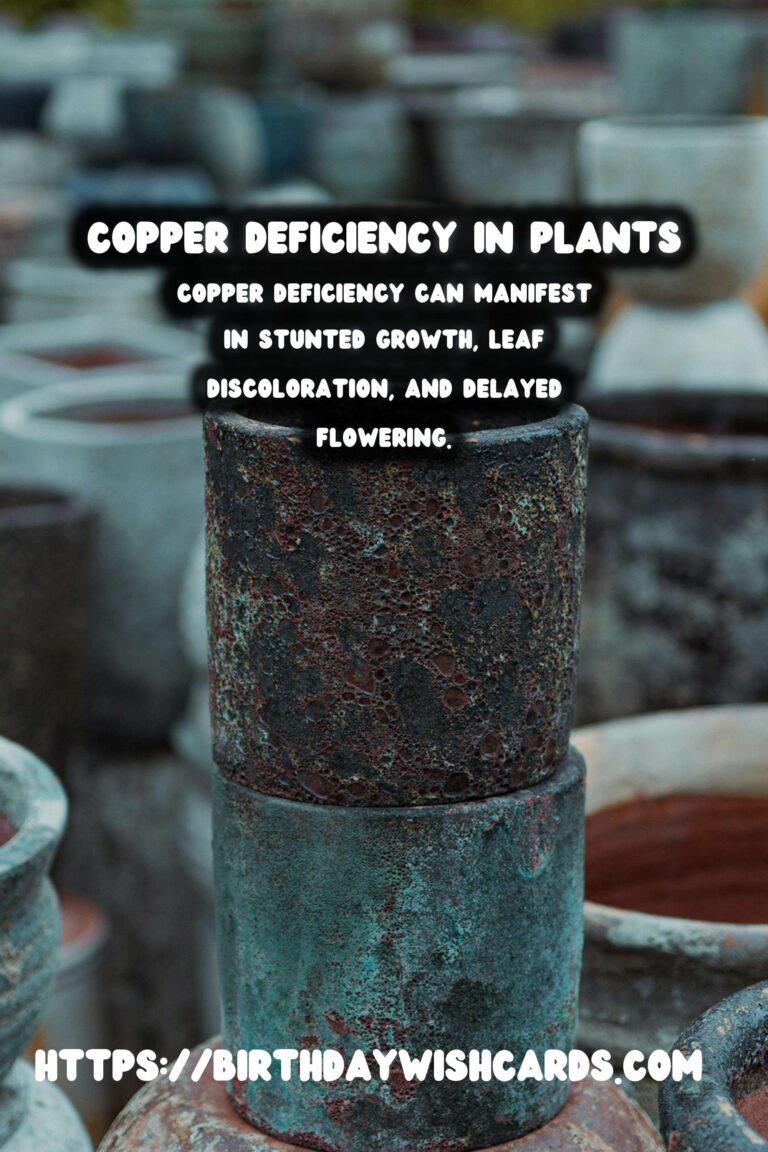
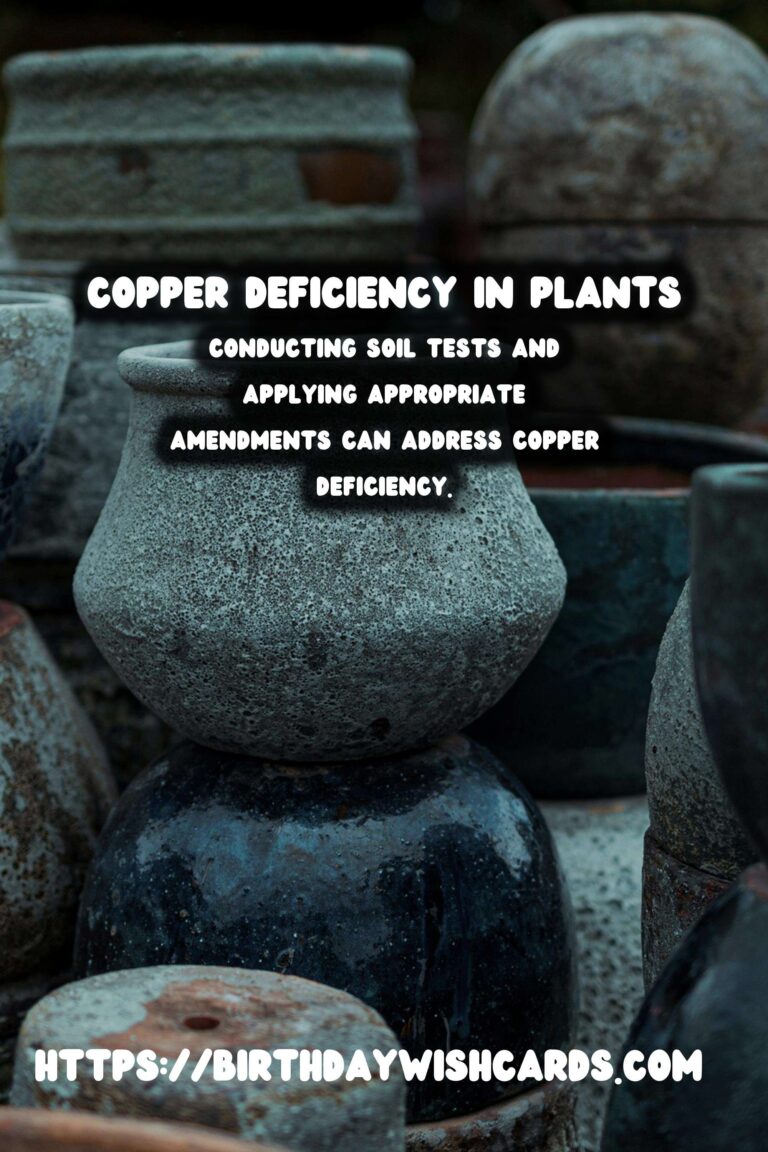
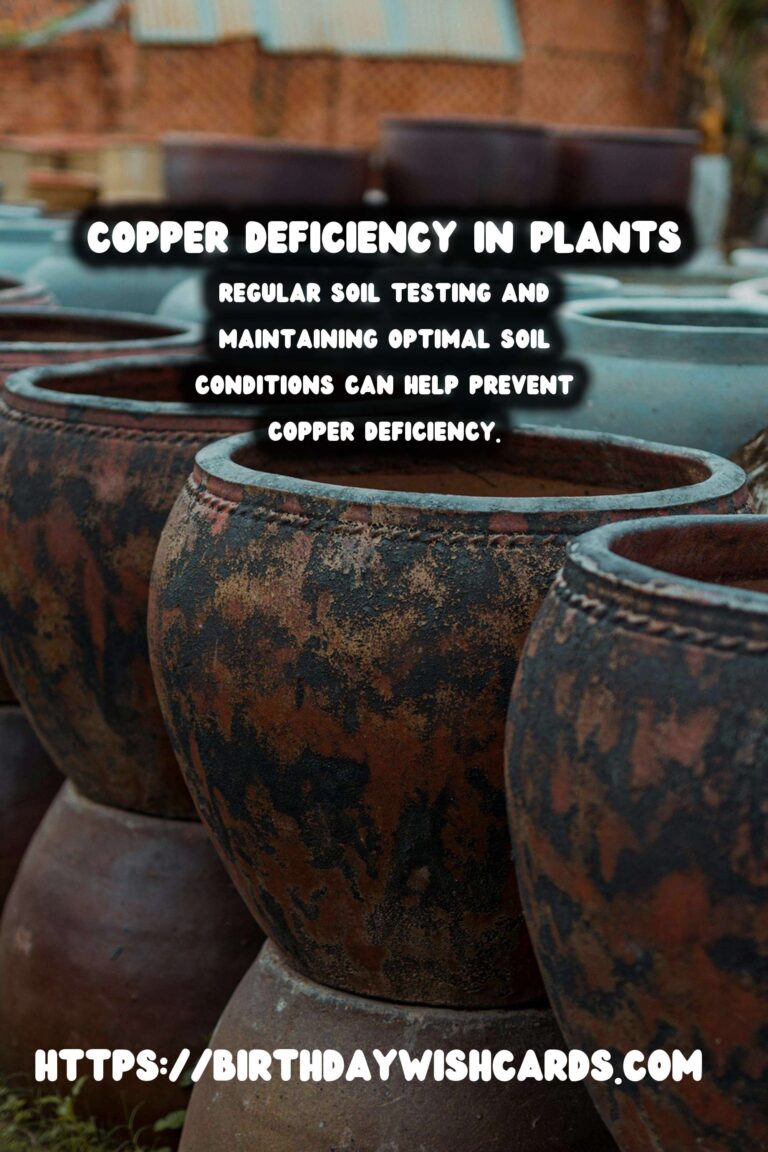
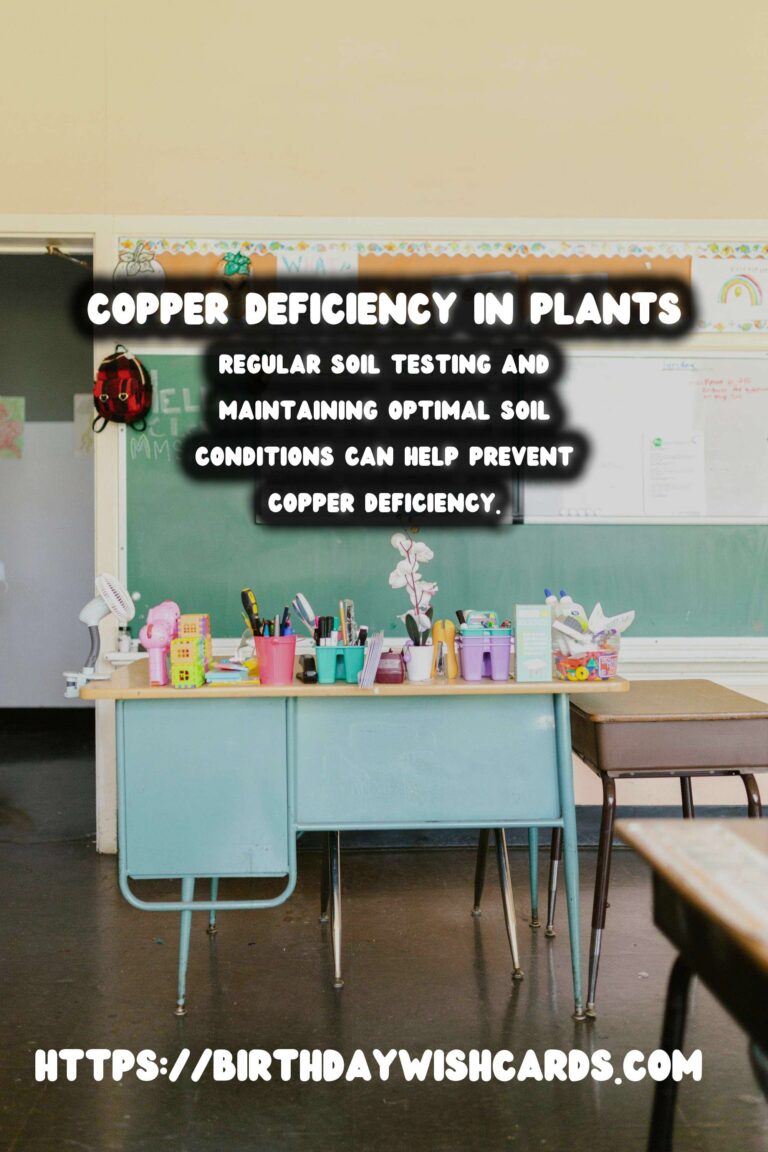
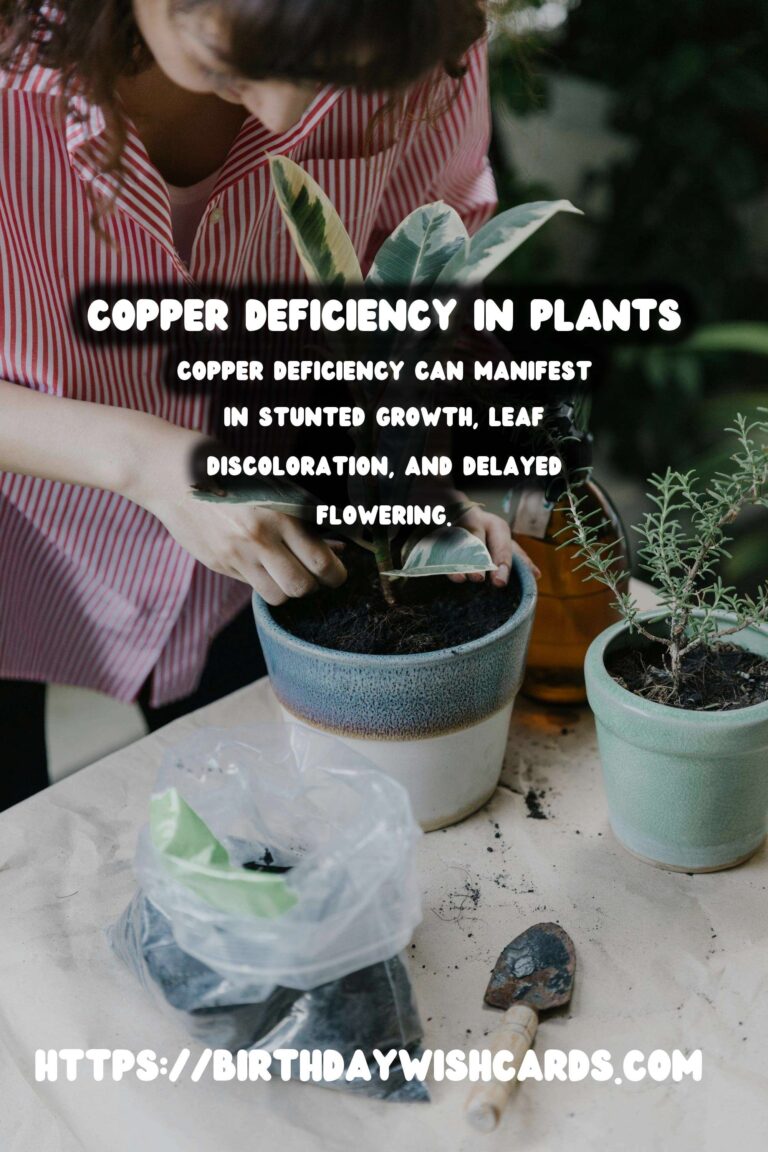

#PlantNutrients #CopperDeficiency #GardeningTips #Agriculture




